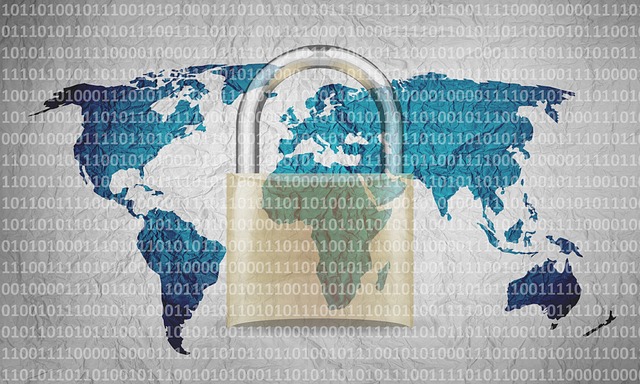In the digital age, personal information has become a valuable commodity. From social media profiles to online shopping habits, our data is constantly being collected, analyzed, and often exploited by various entities. With the increasing prevalence of data breaches and privacy scandals, it has never been more critical to take proactive measures to protect your personal information. In this article, we will explore the importance of data privacy in the digital age and provide you with a comprehensive guide on how to safeguard your personal information.
The Importance of Data Privacy
Before diving into the tips for protecting personal information, it’s crucial to understand why data privacy matters in today’s digital landscape.
1. Protecting Your Identity
Your personal information, such as your name, date of birth, and social security number, can be used by malicious actors to steal your identity. Identity theft can result in financial loss, damaged credit, and countless hours spent rectifying the damage.
2. Safeguarding Financial Information
Many people store sensitive financial information online, such as bank account details and credit card numbers. Without proper data privacy measures, this information can fall into the wrong hands, leading to unauthorized transactions and financial hardship.
3. Maintaining Online Reputation
In an era where employers, colleagues, and potential romantic partners often research individuals online, protecting your online reputation is crucial. Inappropriate or compromising information exposed without your consent can have long-lasting consequences.
4. Avoiding Unwanted Solicitations
Your personal information is a valuable resource for marketers and advertisers. Without proper data privacy practices, you may find yourself inundated with unwanted emails, phone calls, and advertisements that invade your privacy and clutter your digital life.
5. Preventing Personal Data Abuse
Personal data can be exploited for various purposes, including political manipulation and surveillance. By safeguarding your data, you can contribute to protecting democracy and individual freedoms.
6. Preserving Personal Relationships
Sharing personal information online, intentionally or unintentionally, can strain relationships with friends and family members. Avoiding the disclosure of sensitive information can help maintain trust and harmony in your personal life.
Tips for Protecting Personal Information
Now that we understand the importance of data privacy, let’s explore practical steps you can take to protect your personal information in the digital age.
1. Use Strong, Unique Passwords
One of the most basic yet essential steps in data privacy is using strong, unique passwords for all your online accounts. Avoid common passwords like “123456” or “password.” Instead, create complex passwords that include a mix of upper and lower-case letters, numbers, and special characters. Consider using a reliable password manager to keep track of your login credentials securely.
2. Enable Two-Factor Authentication (2FA)
Two-factor authentication adds an extra layer of security to your online accounts. When enabled, you’ll need to provide a second piece of information, usually a one-time code sent to your mobile device, in addition to your password to log in. This significantly reduces the risk of unauthorized access, even if your password is compromised.
3. Be Cautious with Emails
Emails are a common vector for phishing attacks and malware distribution. Be skeptical of unsolicited emails, especially those requesting sensitive information or instructing you to click on suspicious links. Verify the legitimacy of the sender and avoid clicking on links or downloading attachments from unknown sources.
4. Regularly Update Software
Outdated software, including operating systems, web browsers, and applications, can contain vulnerabilities that hackers exploit to gain access to your device and data. Always keep your software up to date with the latest security patches and updates.
5. Encrypt Your Data
Encryption is a powerful tool for protecting personal information. Ensure that your devices, including smartphones and computers, are encrypted. Additionally, consider using end-to-end encryption for communication apps to secure your messages and calls.
6. Limit Sharing on Social Media
Many people overshare personal information on social media platforms. Review your privacy settings and restrict who can see your posts and profile information. Avoid posting sensitive data like your home address, phone number, or financial details.
7. Use a Virtual Private Network (VPN)
A VPN can help protect your online privacy by encrypting your internet connection and masking your IP address. This makes it more challenging for third parties to track your online activities. When using public Wi-Fi networks, always connect through a VPN to prevent potential eavesdropping.
8. Regularly Check Privacy Settings
Periodically review the privacy settings on your online accounts and apps. Many services change their default settings over time, potentially exposing more of your data. Adjust settings to minimize the amount of personal information you share.
9. Avoid Public Wi-Fi for Sensitive Transactions
Public Wi-Fi networks are often unsecured, making them a prime target for cybercriminals. Avoid conducting sensitive transactions, such as online banking or shopping, on public Wi-Fi. If necessary, use a VPN to secure your connection.
10. Use Disposable Email Addresses
When signing up for online services or newsletters, consider using disposable or temporary email addresses. This keeps your primary email inbox clutter-free and reduces the risk of your primary email address falling into the hands of spammers.
11. Be Wary of Data Requests
If a website or app requests more personal information than seems necessary, think twice before providing it. Consider the credibility of the source and whether the requested data is essential for the service they provide.
12. Regularly Monitor Financial Statements
Closely monitor your bank and credit card statements for any unauthorized transactions. The sooner you detect and report suspicious activity, the better chance you have of mitigating financial losses.
13. Educate Yourself and Others
Stay informed about current privacy threats and best practices. Share your knowledge with friends and family, especially those less familiar with digital privacy. Awareness and education are key components of protecting personal information.
14. Secure Physical Documents
Don’t overlook the importance of securing physical documents containing personal information. Shred sensitive paper documents before disposing of them, and store important documents in a secure and locked location.
15. Use Privacy-Focused Search Engines
Consider using privacy-focused search engines like DuckDuckGo or Startpage that do not track your search history or collect personal information. These alternatives can help protect your online privacy.
16. Opt-Out of Data Collection
Many companies offer opt-out options for data collection and targeted advertising. Explore these options to limit the amount of personal information that companies can gather about you.
17. Delete Unused Accounts
If you have online accounts or memberships that you no longer use, consider deleting them. Unused accounts can still be a source of personal information that may become vulnerable in data breaches.
18. Report Suspicious Activity
If you suspect that your personal information has been compromised or you encounter suspicious online behavior, report it to the appropriate authorities or organizations. Prompt reporting can help mitigate potential damage.
19. Use Secure Messaging Apps
When communicating sensitive information, opt for secure messaging apps that offer end-to-end encryption. WhatsApp, Signal, and Telegram are examples of apps that prioritize user privacy.
Conclusion
Data privacy is a fundamental right in the digital age, and protecting your personal information should be a top priority. By following the tips outlined in this article, you can significantly reduce the risk of your data falling into the wrong hands. Remember that digital privacy is an ongoing effort, and staying informed about evolving threats and best practices is essential to safeguarding your personal information in today’s interconnected world. By taking proactive steps to protect your data, you can enjoy the benefits of the digital age without compromising your privacy and security.

